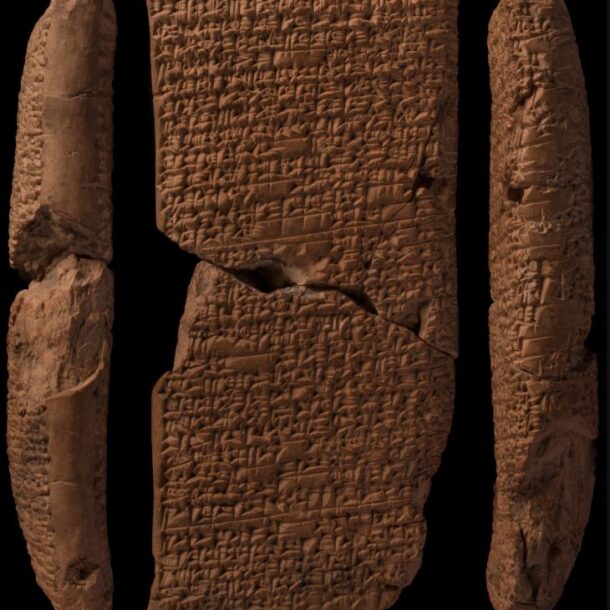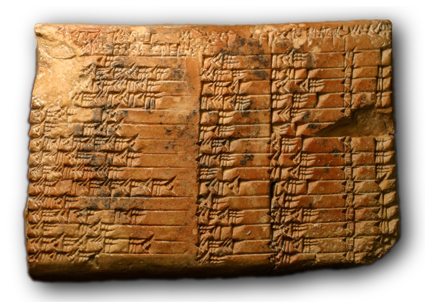While researching clocks for day 14 on the CDLI website, I found it contains images and text of two tablets which use the word “clock” in translation. One is a lexical list, not particularly thrilling. The other though is an absolute gem. It’s in the collection of the British Museum and reads like a battle rap, two scribal students trading insults and braggadocio. Make some noise for tonight’s main event: Enkimanshum vs Girini-isag!
They battle back and forth, questioning each other’s parentage, their speed with the stylus, their skills at everything from settling arguments to measuring out a field to calculating the volume of a triangular prism. It’s tough out there on the mean streets of Ur and if you can’t bring the water clock and its weight to the field, you’re a wasteman.
There’s no missing the voices in this one. There is a tone of glee, of a thirst for the verbal combat and test of quick wits, like students in debating club. Though with perhaps a touch too much ad hominem (spellcheck appropriately wanted to make this “ad Eminem”) for modern rules. The icing on the cake here is that these students are arguing back and forth in Sumerian, still the lingua franca in legal and administrative texts of the time, but their language of daily life was most likely Old Babylonian.
Remember Bane in the Dark Knight, raised in a prison in some ancient part of the world, who grew up unafraid of the dark: “You merely adopted the dark, I was molded by it.”. Similarly, Girini-isag did not learn Sumerian, he was raised in it. In fact, this is an interesting line for the various ways his words have been translated:
“My engenderer is Sumerian, I am the son of a scribe”
“I, I grew up with Sumerian, I am the son of a writer”
“My father is a Sumerian language, I am the son of a blackboard writer”
Of these, the first is most academically precise; the second a good rendition into modern prose; the third a pile of steaming garbage. A blackboard in ancient Mesopotamia? Your father is a language? I can only surmise that the website I found this on had passed a German translation through Google Translate without regard for anachronism or nonsense.
This debate made clear the importance of mathematical abilities to a scribe. It wasn’t all about taking dictation – they also needed to be able to calculate field areas, allocations of wages, forecast crop yields and many other tasks for which basic arithmetic was an absolute necessity. This was an important role in keeping the peace and resolving disputes. A good scribe, adept both at calculations and at mediating between aggrieved parties, was more than worth their daily wages. Their arithmetic kept society’s clock ticking along from workday to workday, season to season, reign to reign.

